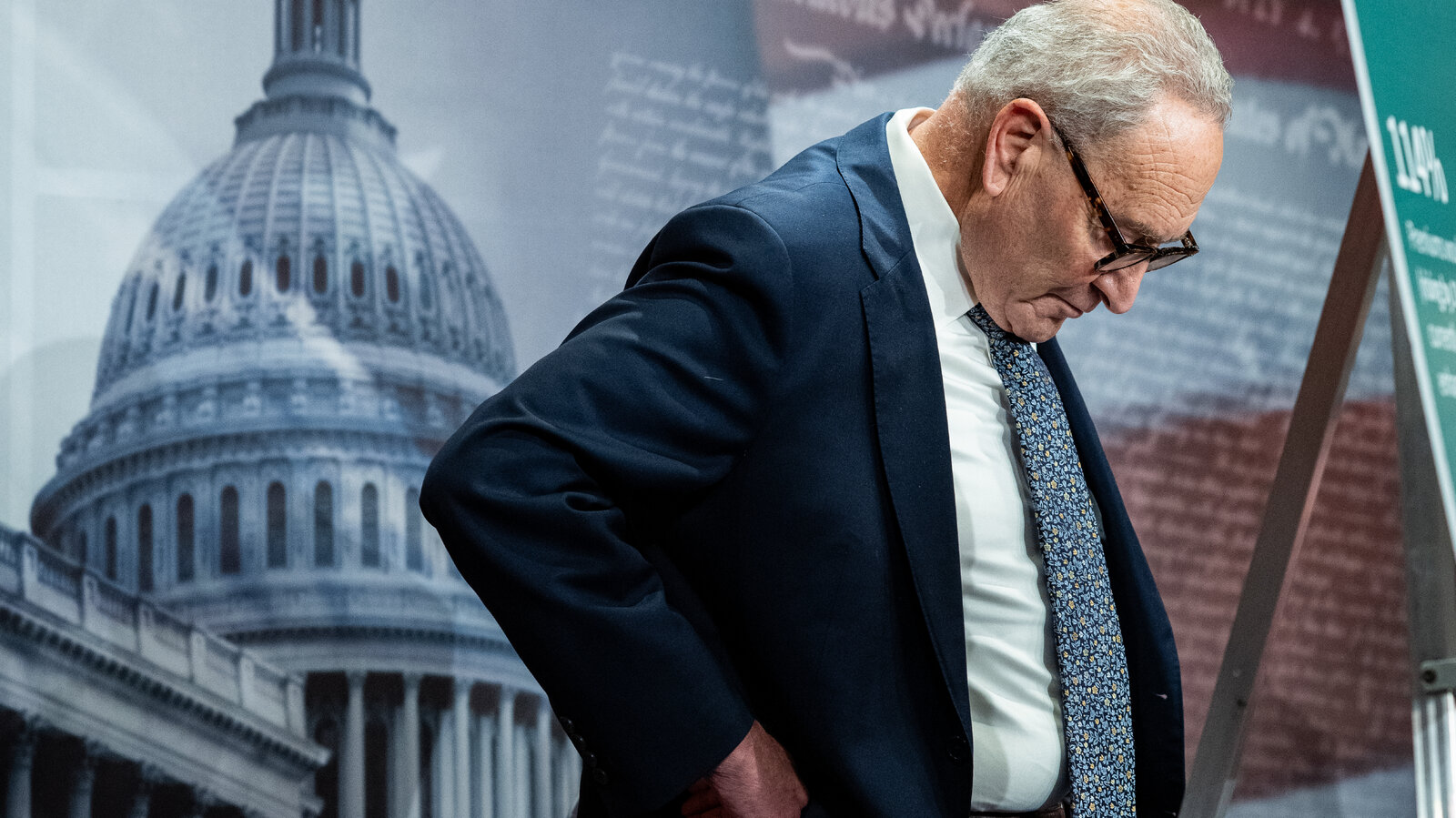Showdown Over Obamacare Subsidies Pushes U.S. Toward Government Shutdown
Showdown Over Obamacare Subsidies Pushes U.S. Toward Government Shutdown
By
David Goldfarb
Last updated:
October 1, 2025
First Published:
October 1, 2025

Photo: The New York Times
The Fight at the Center of a Shutdown
The federal government is once again on the brink of shutting down, with midnight looming as the deadline for lawmakers to strike a deal. At the heart of the impasse is a fight over the Affordable Care Act’s (ACA) enhanced premium tax credits and whether certain immigrants should qualify for those subsidies.
Republicans argue that Democrats are attempting to extend taxpayer-funded health care benefits to undocumented immigrants, a claim Democrats fiercely reject. Instead, Democrats insist they are pushing only to restore access for immigrants who are lawfully present in the United States, benefits that were stripped under President Donald Trump’s 2017 tax legislation.
What the Tax Credits Mean for Americans
The enhanced ACA subsidies were first introduced during the Covid-19 pandemic in 2021 and have since become a cornerstone of health care affordability. These credits reduce monthly insurance premiums for individuals and families purchasing plans on the ACA marketplace. They expanded eligibility to middle-income households, including those earning above 400% of the federal poverty level.
According to the Kaiser Family Foundation (KFF), ACA enrollment has doubled since these credits took effect, growing from around 11 million to more than 24 million people. The overwhelming majority of those receiving assistance are U.S. citizens. Still, a small portion had previously been immigrants legally residing in the country, such as asylum seekers and individuals with temporary protected status.
The credits are set to expire at the end of 2025, but Democrats want an immediate short-term extension included in the funding deal to prevent sharp premium hikes next year.
Republican Resistance and Immigration Debate
Republican leaders have seized on the issue, framing it as a matter of taxpayer fairness. House Speaker Mike Johnson said Tuesday that Democrats were “trying to restore taxpayer-funded benefits for illegal aliens” and pledged that Republicans would block it.
Former President Donald Trump echoed the sentiment, claiming Democrats want to “give massive health care” to undocumented immigrants. Democrats counter that federal law already prohibits taxpayer dollars from being used for undocumented immigrants and that the debate is being distorted for political gain.
House Minority Leader Hakeem Jeffries emphasized that Democrats are not attempting to change that law. Instead, they argue that restoring subsidies for immigrants legally present in the U.S. is about fairness and maintaining health care access for vulnerable populations.
The Cost of Inaction
If Congress fails to extend the subsidies, millions of Americans will feel the impact almost immediately. KFF estimates that premiums could more than double for many households. A family of four earning $130,000, for instance, could see monthly premiums rise from $921 to $1,716.
The Congressional Budget Office (CBO) has warned that without the credits, over 4 million Americans could lose their health insurance by 2034. Extending the subsidies for a decade, however, would cost about $350 billion, a figure Republicans cite as proof the policy is unsustainable.
Representative Andy Harris of Maryland summed up the GOP’s position by calling the subsidies a “Covid-era policy” and insisting the U.S. can no longer afford them.
The Stakes Ahead
The shutdown fight underscores a broader clash over health care policy, immigration, and government spending. While Republicans lean on cost concerns and immigration rhetoric, Democrats argue that letting the subsidies expire would be devastating for working- and middle-class families.
With the deadline hours away, the debate over who deserves health care support has become the latest flashpoint in Washington’s political gridlock. If lawmakers fail to reach an agreement, the government will shut down, and millions of Americans could soon be bracing for sharply higher insurance bills.
Popular articles
Subscribe to unlock premium content
The Rise of Silent Walking Tours in Historic Cities

The Rise of Ultra-Niche Cooking Classes Focused on Historical or Regional Recipes

The Rise of One-Person Dining Experiences for Ultra-Introverts in Major Cities

The Rise of Silent Walking Tours in Historic Cities

The Rise of Ultra-Niche Cooking Classes Focused on Historical or Regional Recipes

The Rise of Silent Walking Tours in Historic Cities









